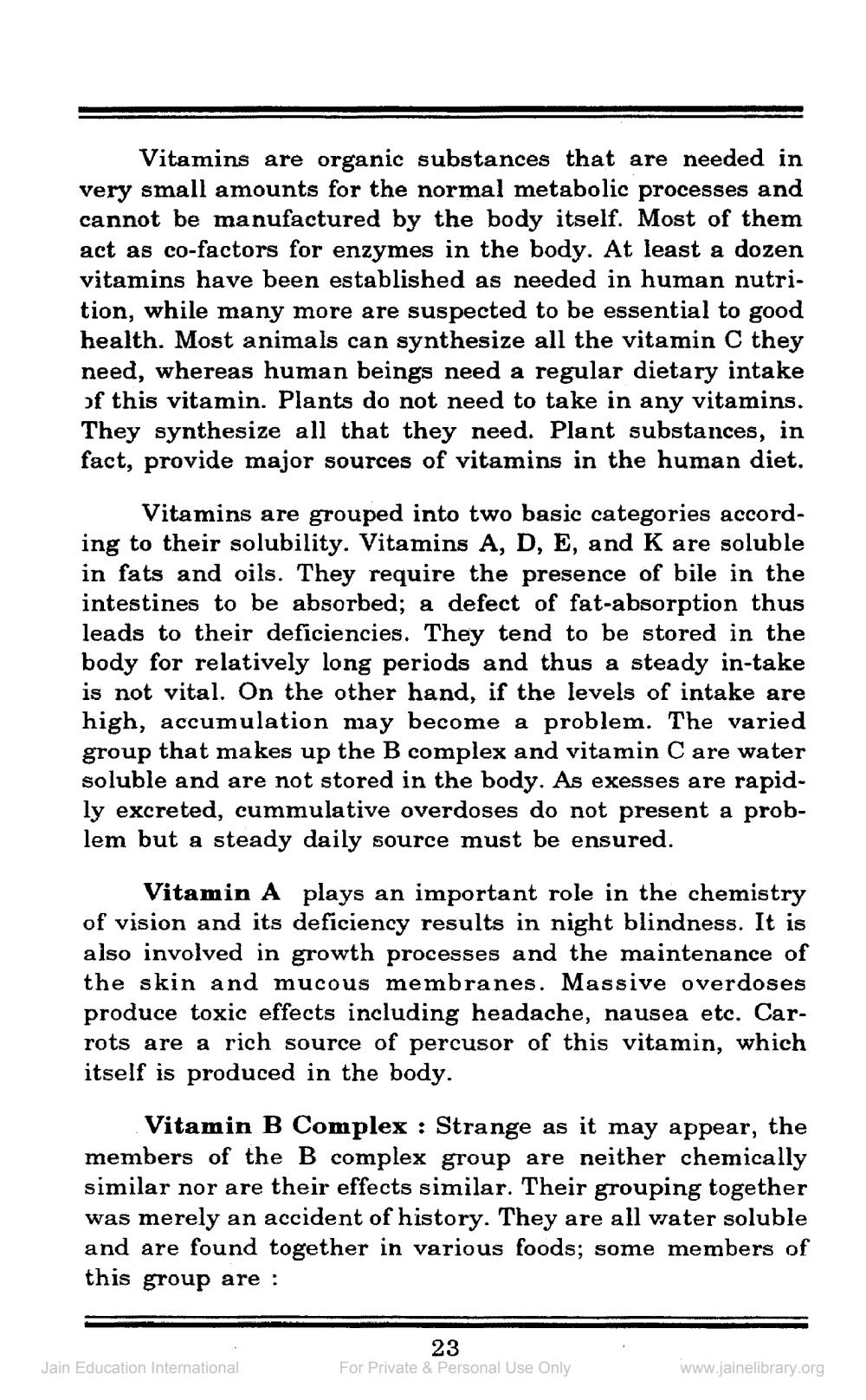________________
Vitamins are organic substances that are needed in very small amounts for the normal metabolic processes and cannot be manufactured by the body itself. Most of them act as co-factors for enzymes in the body. At least a dozen vitamins have been established as needed in human nutrition, while many more are suspected to be essential to good health. Most animals can synthesize all the vitamin C they need, whereas human beings need a regular dietary intake of this vitamin. Plants do not need to take in any vitamins. They synthesize all that they need. Plant substances, in fact, provide major sources of vitamins in the human diet.
Vitamins are grouped into two basic categories according to their solubility. Vitamins A, D, E, and K are soluble in fats and oils. They require the presence of bile in the intestines to be absorbed; a defect of fat-absorption thus leads to their deficiencies. They tend to be stored in the body for relatively long periods and thus a steady in-take is not vital. On the other hand, if the levels of intake are high, accumulation may become a problem. The varied group that makes up the B complex and vitamin C are water soluble and are not stored in the body. As exesses are rapidly excreted, cummulative overdoses do not present a problem but a steady daily source must be ensured.
Vitamin A plays an important role in the chemistry of vision and its deficiency results in night blindness. It is also involved in growth processes and the maintenance of the skin and mucous membranes. Massive overdoses produce toxic effects including headache, nausea etc. Carrots are a rich source of percusor of this vitamin, which itself is produced in the body.
Vitamin B Complex : Strange as it may appear, the members of the B complex group are neither chemically similar nor are their effects similar. Their grouping together was merely an accident of history. They are all water soluble and are found together in various foods; some members of this group are :
-
23 For Private & Personal Use Only
Jain Education International
www.jainelibrary.org




